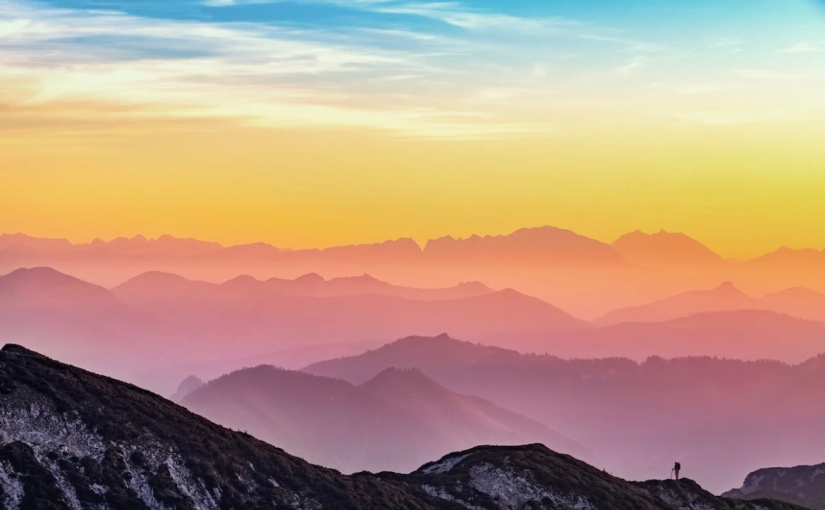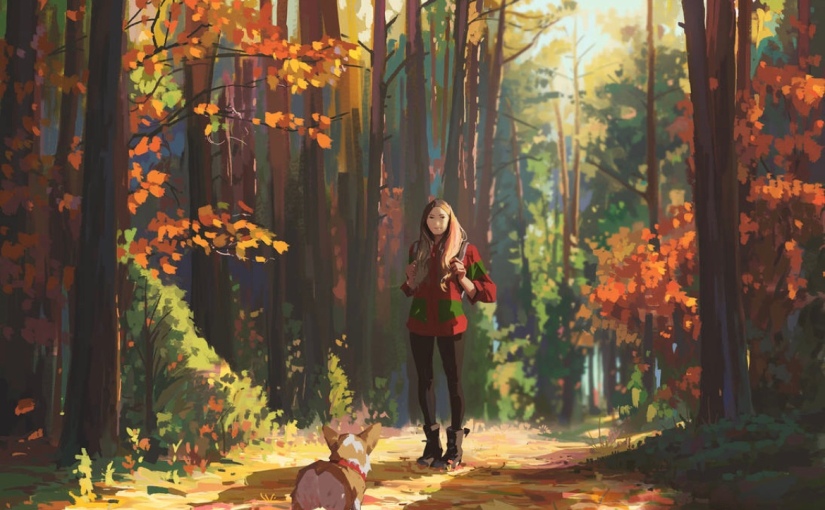People have a hard time stopping. Usually, we start a new activity just as we wrap up a different one. You may be thinking, “Yea right, I can easily hang out on the couch and Netflix my day away.” But the truth is, this is still a form of engagement. Just because it’s sedentary doesn’t mean you’re not constantly processing imagery, perceiving emotions, and your mind is flaying with brain activity!

When we start new activities back to back in our normal, busy, day-to-day lives, we forget to take a few moments to simply stop. When we don’t stop, we don’t decompress. And, if something bad happened early on, it puts a real damper on the rest of the day. Ever heard the phrase, “tomorrow is a new day” …anyone? We’re constantly seeking the “what’s next?”, and we find ourselves losing touch with our own personality.
When we lose touch with ourselves, we carry the stress and anxiety of the previous activities into the new one that we’re about to embark on without even realizing it. Our brains are constantly storing memories and the bad memories will affect everything else, if you let them! Unless you actively change those thought patterns, you may find yourself dwelling and replaying scenarios over and over to catch a glimpse of the “what-ifs”. “What if I would have said this?”, or, “What if I never even bothered going to visit?”. “What if I just did the work myself instead of relying on others?”
The truth is that these “what-ifs” have now robbed you of the enjoyment you were seeking in whatever it is you’re doing (hopefully hiking). So, how do you regain your sense of self? How do you reconnect with the fun in life? How do you rediscover that positive aura you want to surround yourself with?
If you practice the following techniques, you can train yourself to see the silver lining in even the worst of times. Give them a try on your next hike and feel the negative energy dissolve from around you. Report back here, on HykLyt, in the comments section, if any of these exercises seem to work for you. And, if you like the blog, please think about subscribing. It’s free and will keep you up to date on everything HykLyt!
How-To Meditate While Hiking

1) Focus On The Steps: While you’re hiking, begin to train your mind to fully acknowledge each step. What do you feel around the soles of your boots? How does gravel give way underneath you? What about sand? Think about the dampened and matted grass underneath you as morning dew wets the trail. Staying grounded is simply that, live in the moment, and experiencing your surroundings.
2) Breathe In Your Nose & Out Your Mouth: It may seem silly, but this is a very calming exercise. I used this in the army. In fact, I used this technique to stay calm while treating casualties in a combat environment. It steadies your breathes and soothes the mind. Paying attention to involuntary breathing mechanisms can relax you and relieve stress even under the most extreme circumstances. Side note: This simple exercise actually helps with headaches and migraines, as well!
3) Find The Wildlife: As you focus on your steps, and you concentrate on your breathing, your next goal is to find the critters. We can learn so much from the wildlife that we cross paths with along the trails. Learning something new about any animal is a great exercise that will provide a friendly challenge to yourself while you hike. It’s a blast to discover new things and personally I have been surprised by wildlife plenty of times!
4) Bring A Sketchbook: Look, I’m far from a great artist (or even being called an artist), but there’s something special about art. As you hike, take a pit stop at a scenic overlook and stay awhile. Sketch the landscape or your close surroundings. Jot down the trail and date to look back on it in the future. Ever hear that “putting it on paper” makes it easier to remember? Well, I figure I might as well put my happy memories on paper in some form.
5) Move With Each Breathe: So, you’ve already been mindfully breathing while meditation hiking. Now, let’s add an element of fluidity. Feel your fingers by wiggling them at your sides. This breaks the outside distractions. Upon inhale, take a step, and on exhale, another. This will make you move slower, but deliberately. Concentrated.
6) Listen And Respond To Your Thoughts: I won’t call you crazy for talking to yourself when you’re out on your own in the wilds. This is a good time to really hear yourself out and work through anything that you feel may have been holding you back lately. Many times, our problems are only our problems because we continue to ignore them. They want to be validated, just the same as individuals. Everyone wants their place in life. Your problems do to. Address them. Work on solutions.
7) Practice Physical And Emotional Awareness: This could look different for each person, but as an adventure guide, I would recommend to hikers to feel out their surroundings and listen to themselves. This step is essentially putting all of the previous 6 steps into one. And once you’re able to do all of these things, you’ve found your way into mindful and meditative hiking.
Let Me Know What Works For You
This practice of mindful hiking is not the only way to expressly meditate while on the trails. I plan to write more articles on this subject but I’m curious to know what others have discovered that works for them. If you have grounding techniques that you practice often and it seems to help relax you, let me know in the comments or email me at hyklyt@hyklyt.com
Thanks for reading, hiker!
This post was written by Evan




















